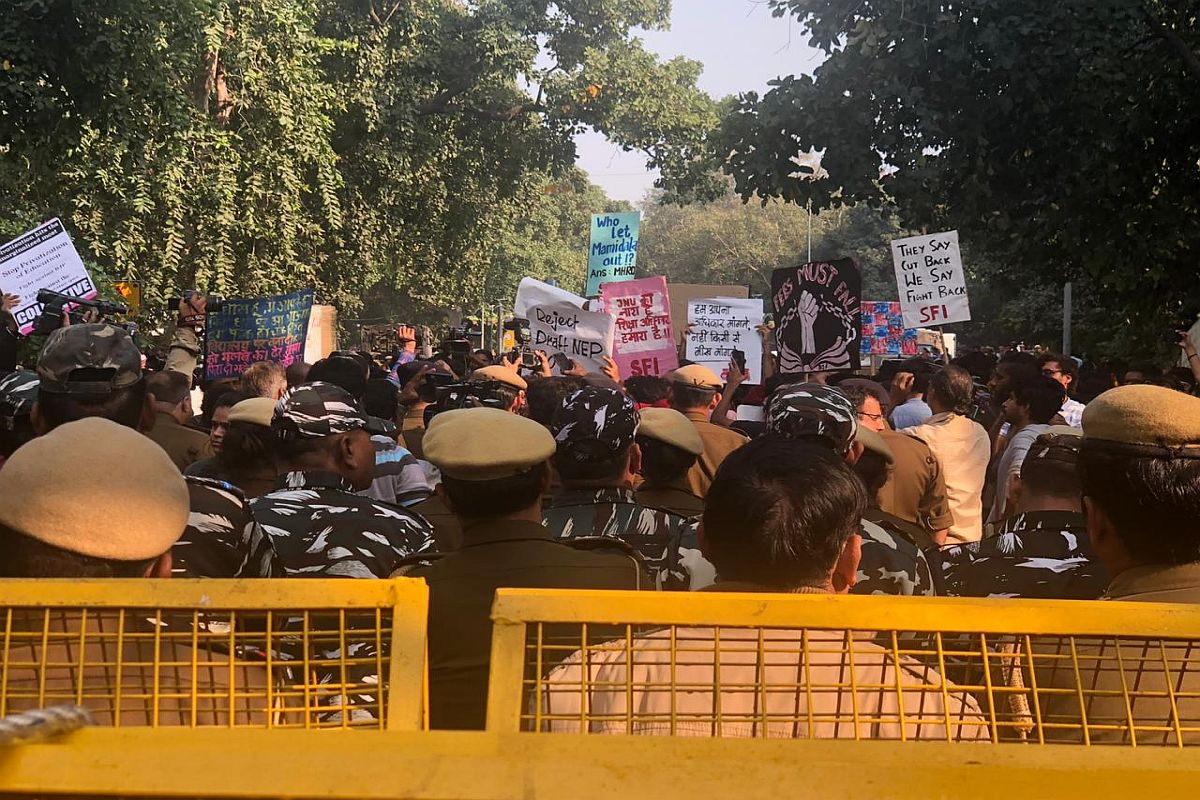The Delhi Police on Monday lathi charged the protesting Jawaharlal Nehru University (JNU) students, who were marching towards the Rashtrapati Bhavan in Delhi to press for their demands.
The police cane charged both male and female students after they tried to break through the barricades put up in south Delhi’s Bhikaji Cama Place area.
Advertisement
Earlier in the day, following the advice of the Delhi Police, entry and exit points at three Metro stations Udyog Bhawan, Lok Kalyan Marg and Central Secretariat metro stations were closed by authorities fearing protests there.
Hundreds of the JNU students marched out of the JNU campus. Though the march started almost four hours late as the security forces had sealed all the gates of the JNU in early morning to stop the march. It was only after a lot of convincing by the JNU students union (JNUSU) that march was allowed.
The march from the JNU to the President’s House was called by the Jawaharlal Nehru University Students Union (JNUSU) after their month long protest failed to have any effect upon the administration, which rejected their demand of complete rollback of the proposed hike in the hostel charges.
The JNUSU had earlier emailed a letter of their demands to the President.
In the letter, the students have demanded complete rollback of proposed fee hike, resignation of the Vice-Chancellor, withdrawal of police cases on the agitating students.
Last month, entry and exit gates of Metro stations near Parliament were closed to prevent the students from approaching the Parliament.
Section 144 was imposed as the news of JNU students marching towards Parliament was out. The students defied the prohibitory orders and continued with their protest.
A hostel draft manual, introduced by the varsity, has become a bone of contention between students and varsity administration since October 28 when the administration didn’t allow the JNUSU to attend the IHA committee meeting that was to clear it.
The students have been protesting for over a month over the steep hike proposed in the hostel fees.
The draft hostel manual proposed to hike hostel charges from Rs 10 for double occupancy to Rs 300, and Rs 600 for single occupancy from the earlier Rs 20.
However, after the student protests, the varsity administration announced a 50 per cent concession for the BPL category students, but it failed to pacify students. The issue is being handled by a high-powered committee of the Union Ministry of Human Resources Department, which has given its recommendations to the varsity administration after several meetings with students and their representatives.
The HRD Ministry had set up a three-member committee to look into ways to restore normal functioning in the JNU and mediate between the agitating students and the administration.
The panel submitted its report to the ministry but no call has been taken yet.











